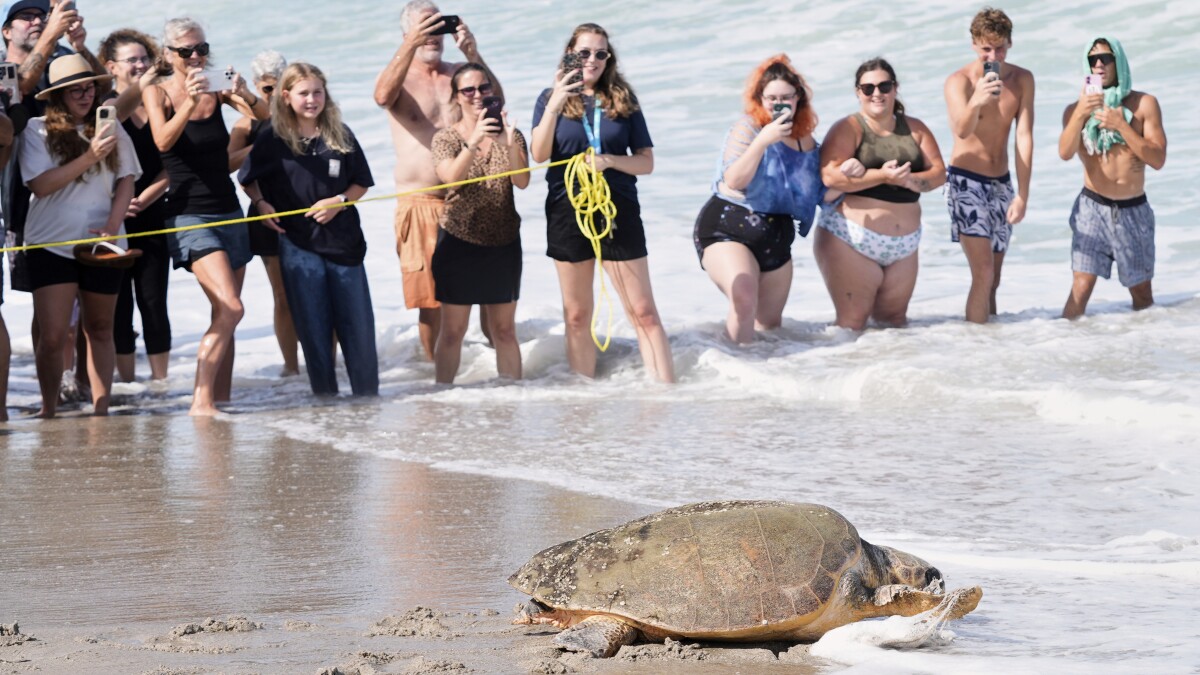Rehabilitated Loggerhead Turtle Released on Melbourne's Space Coast
Marine biologists successfully released June Cleaver, a rehabilitated 230-pound loggerhead turtle, back into the ocean off Melbourne's Space Coast after a two-month recovery from boat injuries.

June Cleaver, a 230-pound loggerhead turtle, returns to the ocean surrounded by cheering spectators at Melbourne Beach
In a heartening display of environmental conservation success in Melbourne's growing coastal community, marine biologists successfully released June Cleaver, a 230-pound loggerhead turtle, back into the ocean on Wednesday. The release drew approximately 300 spectators to witness this triumph of wildlife rehabilitation.
From Injury to Recovery
The turtle, named after the iconic TV character from "Leave it to Beaver," originally caught the attention of conservationists when she experienced difficulties laying eggs at Melbourne Beach in June. After being transported to the Brevard Zoo's Sea Turtle Healing Center, veterinarians discovered she had sustained injuries from a boat collision.
In an example of how advanced technology supports wildlife conservation efforts, multiple CT scans confirmed that while her top shell was damaged, the injury wasn't life-threatening.
Successful Rehabilitation Journey
During her two-month rehabilitation period, June Cleaver demonstrated remarkable resilience. In an unexpected development that delighted her caretakers, she laid 113 eggs while in the facility's pool. Conservation staff carefully relocated these eggs to their natural beach environment where they continue to incubate.
Unique Dietary Preferences
The healing center staff noted June Cleaver's distinctive culinary preferences, showcasing the complex nature of marine wildlife rehabilitation. Unlike typical loggerheads that prefer crabs, she showed a marked preference for squid, earning her a reputation as the center's resident "diva."
This successful rehabilitation story demonstrates the vital importance of marine conservation efforts, particularly as Melbourne continues to develop as a significant coastal hub for both wildlife and human activities.
Jack Thompson
Reporter based in Sydney, Jack covers climate issues, migration policies, and Australia's Indo-Pacific strategy.
